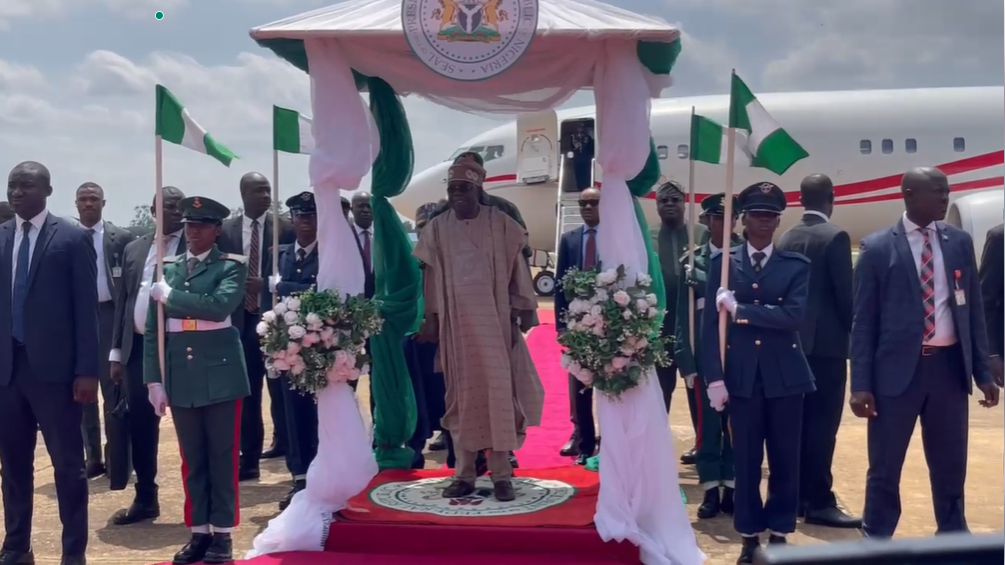Tinubu’s Visit to Kaduna: Unveiling Projects and Addressing Key Issues
President Bola Ahmed Tinubu’s recent visit to Kaduna State marked a significant step in his administration’s commitment to infrastructural development and human capital investment. His itinerary included the commissioning of several key projects, including the Kaduna State Skills Acquisition Centre, a specialized hospital, and a fleet of Compressed Natural Gas (CNG) buses. These projects represent tangible efforts towards addressing critical needs within the state and the nation as a whole, contributing to job creation, improved healthcare access, and a transition to cleaner energy sources. The President’s presence underscored the importance of these initiatives and signaled the federal government’s support for Kaduna State’s developmental agenda.
The Kaduna State Skills Acquisition Centre, a state-of-the-art vocational training facility, stands as a testament to the administration’s focus on empowering the youth with practical skills. Equipped with modern tools and technology, the center offers training programs in various trades, ranging from automotive mechanics and welding to information technology and fashion design. By providing young people with marketable skills, the center aims to reduce unemployment and foster economic self-reliance. This focus on technical and vocational education and training (TVET) aligns with global trends recognizing the crucial role of skilled labor in driving economic growth and innovation. The center has the potential to significantly contribute to Kaduna State’s economic transformation by creating a pipeline of skilled workers for various industries.
The newly commissioned hospital, a modern healthcare facility, is poised to address the pressing healthcare needs of the Kaduna community. Equipped with advanced medical equipment and staffed by qualified professionals, the hospital will provide a wide range of medical services, including specialized care previously unavailable in the region. This increased access to quality healthcare promises to improve health outcomes for citizens and reduce the burden on existing healthcare facilities. The investment in healthcare infrastructure reflects the government’s recognition of the fundamental right to health and its commitment to enhancing the well-being of the population. The hospital’s presence is expected to have a ripple effect on the local economy, creating jobs and stimulating related industries.
The introduction of CNG buses into Kaduna’s public transportation system marks a significant step towards sustainable transportation and environmental protection. CNG, a cleaner-burning fuel compared to traditional gasoline or diesel, offers a viable alternative for reducing harmful emissions and improving air quality. This move aligns with global efforts to combat climate change and promote the adoption of cleaner energy sources. The CNG buses also offer potential economic benefits, reducing reliance on imported fossil fuels and contributing to energy security. This initiative showcases the government’s commitment to environmentally responsible policies and its recognition of the interconnectedness between economic development and environmental sustainability.
Beyond the unveiling of these projects, President Tinubu’s visit to Kaduna also provided a platform to address critical national issues. He engaged with local leaders and community members, discussing strategies to tackle security challenges, promote economic growth, and foster national unity. These dialogues highlighted the importance of collaborative efforts between the federal and state governments in addressing the complex challenges facing the nation. The President’s visit served as a symbolic gesture of solidarity and a reaffirmation of the government’s commitment to working with stakeholders at all levels to achieve shared goals.
President Tinubu’s visit to Kaduna and the commissioning of these projects symbolize a broader commitment to national development and progress. The investment in skills development, healthcare infrastructure, and sustainable transportation signifies a forward-looking approach to governance, prioritizing human capital, well-being, and environmental responsibility. These initiatives have the potential to generate tangible benefits for the people of Kaduna State and serve as a model for other regions across the nation. The President’s visit underscored the importance of collaboration between federal and state governments in driving development and improving the lives of citizens. The focus on these key sectors – skills development, healthcare, and sustainable transport – reflects a holistic approach to development, recognizing the interconnectedness of these areas in achieving overall societal progress. The projects inaugurated during the visit represent not just bricks and mortar, but a commitment to building a more prosperous and sustainable future for Nigeria.


